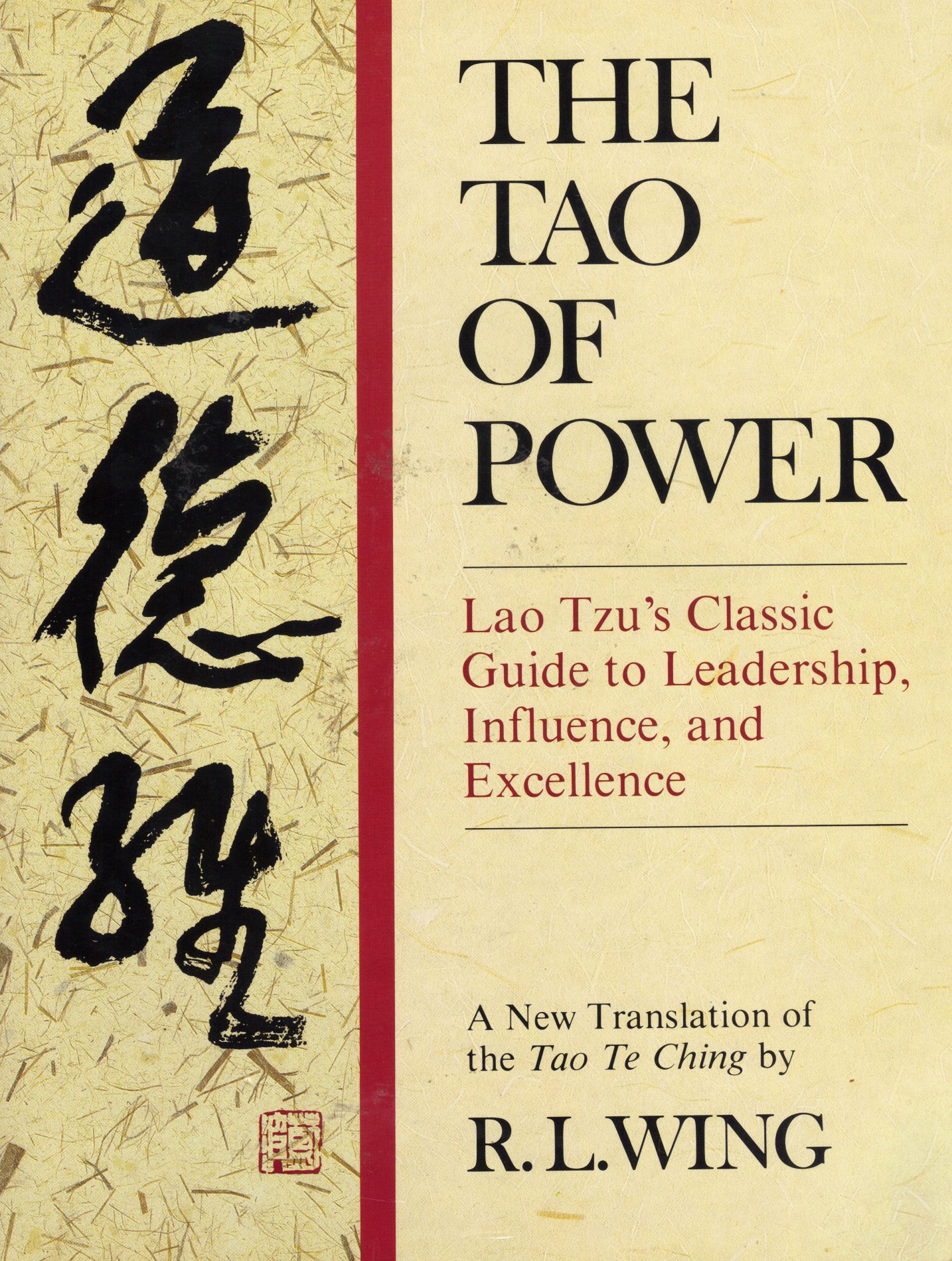
The Tao of Power

This is a large-size book that consists of the following:
Notes on the translation, explanation of the Tao, explanation of the Tao of Power, short entries on the right mind approach, the left mind approach,the whole mind approach and then the Tao Te Ching itself.
For each verse the following can be found; The verse in Chinese, the translation of the verse, various notes on the verse, and a page opposite the verse that may have an ideograph on it with an explanation, a blank page with notes or a page with an illustration and an explanation of that illustration.
Verse 11
Thirty spokes converge at one hub;
What is not there makes the wheel useful.
Clay is shaped to form a vessel;
What is not there makes the vessel useful.
Doors and windows are cut to form a room;
What is not there makes the room useful.
Therefore, take advantage of what is there,
By making use of what is not.
(A fairly standard translation that is a little more understandable than most.)
Verse 17
Superior leaders are those whose existence is merely known;
The next best are loved and honored;
The next are respected;
And the next are ridiculed.
Those who lack belief
Will not in turn be believed.
But when the command comes from afar
And the work is done, the good achieved,
The people say, 'We did it naturally.'
(This one differs somewhat from other translations. The various verses tend to take the first part and use different words such as 'love and power' in place of 'loved and honored'; 'frightened' instead of 'respected' and despise and revile' instead of being ridiculed. There are more variations on the words used.)
In Verse 25 in this translation the word 'leader' is used instead of 'king.' Again, sometimes other words can be found in place of both of these.
In Verse 39 this translations words the last line as 'Do not desire to shine like jade; wear ornaments as if they were stone.' There's quite a variety of different translations for that line A couple include:
'They don't want to be like jewels or like stones.'
'Better to rumble like rocks than tinkle like jade.'
'...they desire not to dazzle or glitter like jade but to remain firm and strong like stone.'
There are various explanations of why there are differences in translation. A lot seems to be centered on two factors: first, the age of the original writing and how the Chinese language does change over time, making really old ideographs sometimes difficult to get a precise meaning from. Secondly, the ideographs themselves were not really designed to be used to deal with complex spiritual matters and this also causes differences in translation.
Some versions of the Tao Te Ching even have the Te section put before the Tao section. Still, overall, the general meaning of the verses remains pretty similar from one translation to the next, but there can still be different words and on occasion a slightly different meaning.
The illustrations that are done on some pages sometimes show specific emperors or Lao Tzu riding his bill or things like that. Most of the illustrations are very well done; a few are amazing.
Back to start of Spirituality section
Back to start of Taoism section
Back to main Index page
|